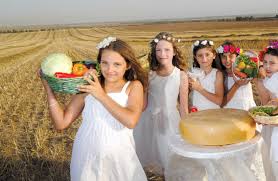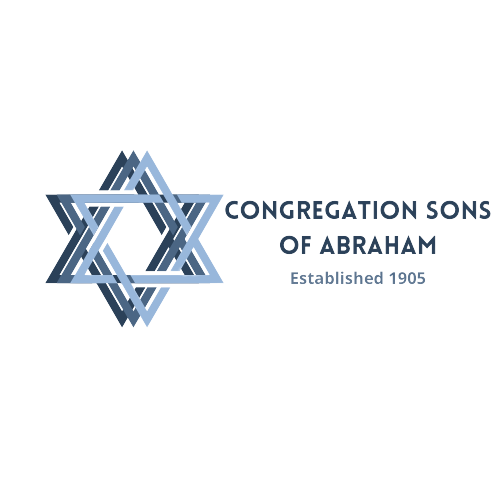
The holiday of Shavuot is a two-day holiday, beginning at sundown of the 5th of Sivan and lasting until nightfall of the 7th of Sivan. In the Reform movement, the holiday is celebrated just through the 6th of Sivan, corresponding in 2024 to Wednesday, June 12.
We will have a service beginning at 9:00 AM, both in-person and on Zoom. The Yizkor service is later on, between 10 and 11 AM.
It is an emotional and powerful service, as we read off the names of ALL our deceased relatives, and recite special prayers.
Please join us in person or on Zoom.
What Shavuot Commemorates
The word Shavuot (or Shavuos) means “weeks.” It celebrates the completion of the seven-week counting period between Passover and Shavuot – the Omer.
The Torah was given by G‑d to the Jewish people on Mount Sinai on Shavuot more than 3,300 years ago. Every year on the holiday of Shavuot we renew our acceptance of G‑d’s gift, and G‑d “re-gives” the Torah.
The giving of the Torah was a far-reaching spiritual event—one that touched the essence of the Jewish soul for all times. Our sages have compared it to a wedding between G‑d and the Jewish people. Shavuot also means “oaths,” for on this day G‑d swore eternal devotion to us, and we in turn pledged everlasting loyalty to Him.
In ancient times, two wheat loaves would be offered in the Holy Temple on Shavuot. It was also at this time that people would begin to bring bikkurim, their first and choicest fruits, to thank G‑d for Israel’s bounty.
- Women and girls light holiday candles to usher in the holiday, on both the first and second evenings of the holidays.
- It is customary to stay up all night learning Torah on the first night of Shavuot.
- All men, women and children should go to the synagogue to hear the reading of the Ten Commandments on the first day of Shavuot.
- As on other holidays, special meals are eaten, and no “work” may be performed.
- It is customary to eat dairy foods on Shavuot. Menus range from traditional cheese blintzes to quiches, casseroles and more.
- On the second day of Shavuot, the Yizkor memorial service is recited.
- Some communities read the Book of Ruth during morning services, as King David—whose passing occurred on this day—was a descendant of Ruth the Moabite.
- Some have the custom to decorate their homes (and synagogues) with flowers and sweet-smelling plants in advance of Shavuot.
- The holiday of Shavuot is a two-day holiday, beginning at sundown of the 5th of Sivan and lasting until nightfall of the 7th of Sivan. In Israel it is a one-day holiday, ending at nightfall of the 6th of Sivan.
The giving of the Torah was a far-reaching spiritual event—one that touched the essence of the Jewish soul for all times. Our sages have compared it to a wedding between G‑d and the Jewish people. Shavuot also means “oaths,” for on this day G‑d swore eternal devotion to us, and we in turn pledged everlasting loyalty to Him.
In ancient times, two wheat loaves would be offered in the Holy Temple on Shavuot. It was also at this time that people would begin to bring bikkurim, their first and choicest fruits, to thank G‑d for Israel’s bounty.
